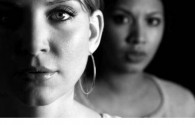Catherine Hennessy is Director of Development and Partnerships at Revolving Doors and Expert Group lead on our fifth theme, Women, Homelessness and The Criminal Justice System. Here, she explains why more support is needed for women exiting the prison system.
Modern Magdalenes and Forgotten Women
In mid twentieth century Ireland up to 10,000 women and girls were incarcerated in Catholic Church-run Magdalene laundries where they were treated as virtual slaves. Last week Irish Prime Minister Enda Kenny delivered a heartfelt apology to them. Addressing the surviving women directly, Kenny said “As a society we failed you. We forgot you or if we thought at all, we did so in untrue and offensive stereotypes”. With many of the affected women having entered the Magdalene Laundries from state institutions or from abusive home lives, there are parallels between their experiences and those of contemporary women leaving troubled homes, the care system or criminal justice system.
It’s all too easy to view the experience of the Magdalene women as a shameful episode in the history of the Irish state – a punitive and moralistic response, and I say this as someone who was born in Ireland while some of the Magdalene Laundries were still open. But, before we dismiss this as something that could only have happened in that country at that time, it’s worth considering the fate of girls and women in the current UK social care system.Lurid tabloid accounts of those who kill or harm children garner many more column inches than stories describing the experiences of the much larger number of girls who are suffering abuse and trauma day after day. Yet, when these girls grow up traumatised and angry, we are all too quick as a society to forget the origins of that trauma, labeling and stereotyping them as lags, prostitutes, and junkies.
In modern social care, housing and health services diagnostic language has replaced moral descriptors. We no longer talk of fallen women preferring phrases like sex worker, personality disordered, homeless, drug user. So a homeless woman who copes with domestic abuse by drinking will be labelled as a dependent drinker when she attends an alcohol service in the morning and a domestic violence survivor when she returns to a refuge in the afternoon. There are all sorts of reasons why we do this – not least funding – but I am troubled that it can lead to some harmful and unintended consequences.
Firstly it denies the personhood of the women we are seeking to help. None of us would like to be labelled or defined either by what we need in life or by the worst thing that we have done.
Secondly it leads to an artificial division between services seen as helping those who are victims and services dealing with those whose behaviour is seen as damaging, criminal or injurious to themselves. Such a distinction obscures the trauma lying at the root of distress in both groups.
Thirdly and most worryingly, in an era of ever increasing competition for resources, it can lead to the creation of a hierarchy in which the needs of those women perceived as deserving victims are placed above the needs of those whose behaviour is seen as problematic or criminal, regardless of the fact that both may have a shared root cause.
I would like to see all support and campaigning services for vulnerable women working together to articulate the impact of trauma on girls and women. Such an alliance must include organisations working with children, girls and adult women, victims, offenders and homeless women. I am delighted to be working with St Mungo’s on their Rebuilding Shattered Lives campaign. I hope the campaign will help start this much needed dialogue and I look forward to hearing your views while the campaign focuses on women in the criminal justice system.




